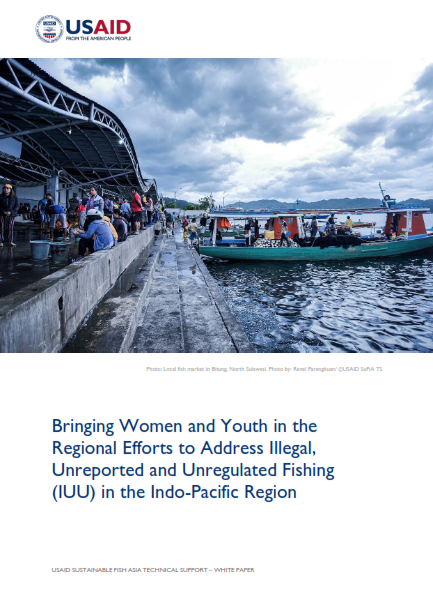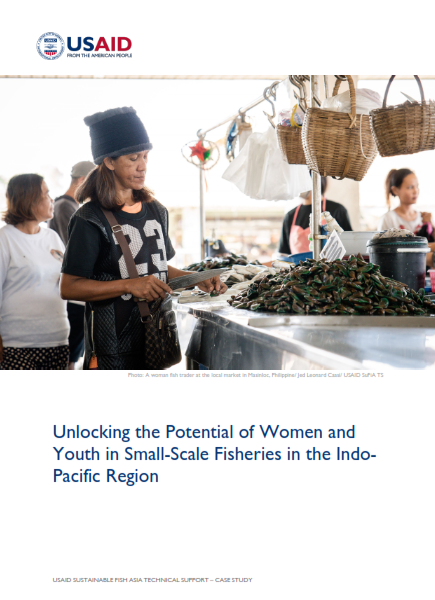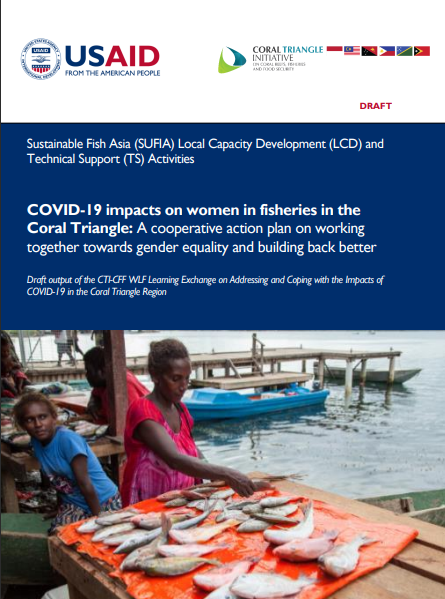Marine Plastic Pollution and Its Sources in the Coral Triangle
| # | Documents | Filesize |
|---|
Marine plastic pollution is a crisis that transcends borders, impacting not only the natural environment but also the very fabric of our societies. Its consequences, both known and unknown, reverberate through our oceans, affecting wildlife, contaminating fish stocks, and degrading the delicate habitats that support a rich biodiversity. The urgency to address this global emergency cannot be overstated.
This report, titled “Marine Plastic Pollution and Its Sources in the Coral Triangle,” sheds light on the grave issue of plastic waste in one of the world’s most diverse and fragile marine ecosystems. The Coral Triangle is renowned for its unparalleled marine biodiversity, encompassing a vast expanse of ocean where Indonesia, Malaysia, Papua New Guinea, the Philippines, Solomon Islands, and Timor-Leste converge. However, this region, teeming with life and natural wonders, is now confronted with the daunting challenge of marine plastic pollution.
The staggering statistic that 11 million tonnes of plastic waste enters our oceans each year, with a projected increase to 29 million tonnes by 2040, highlights the pressing need for immediate action. This report serves as a vital tool in understanding the sources, implications, and potential solutions to combat marine plastic pollution within the Coral Triangle.
Beyond its environmental ramifications, marine plastic pollution is also a developmental problem, impacting industries, livelihoods, and the well-being of coastal communities. Recognizing this multifaceted nature of the issue, the Coral Triangle Initiative on Coral Reefs, Fisheries, and Food Security (CTI-CFF) has embarked on a mission to develop scalable action programs and management plans that protect marine ecosystems, preserve biodiversity, and foster better livelihoods.
This comprehensive stocktake report encompasses a range of objectives. It provides crucial information to address the problem at hand, enabling the development of scalable and adaptable solutions for key coastal areas within the Coral Triangle. It assesses and adapts existing initiatives and innovations while identifying potential sources of capital to inform planning, partnerships, and implementation strategies.
The stocktake methodology employed a meticulous approach, combining a thorough review of existing reports and analyses with targeted questionnaires sent to key stakeholders such as MPA management groups, the CTI-CFF’s Local Government Network, strategic partners, and National Coordination Committees.
By incorporating the latest research findings and publications relevant to the Coral Triangle, this report presents an up-to-date assessment of the marine plastic pollution landscape.
The recommendations outlined in this report are aimed at supporting the CTI-CFF in achieving its goals, including contribution to the protection of 30 percent of the coastal and marine waters in the Coral Triangle region by 2030 (30x30, and aligning with the Coral Triangle countries’ commitments to the United Nations Sustainable Development Goals (SDGs), particularly Goal 14: Life Below Water.
As we delve into the pages of this report, we are confronted with the harsh reality of marine plastic pollution in the Coral Triangle. Yet, we are also presented with hope and a call to action. It is my sincere hope that the knowledge and insights provided in this report will serve as a catalyst for change, inspiring individuals, organizations, and governments to take bold steps towards a future free from the shackles of marine plastic pollution.
I would like to express my sincere gratitude to the WWF Coral Triangle Programme for their invaluable support in the development of this report. Special appreciation I give to the writer of this report, Jackie Thomas. Her commitment to meticulous research, insightful analysis, and clear communication has been crucial in crafting this valuable document.
I would also like to acknowledge the contributions of the numerous individuals, organizations, and institutions who generously shared their knowledge, insights, and data during the process of preparing this report. Their collaboration and cooperation have been essential in creating a comprehensive and accurate assessment of marine plastic pollution and its sources in the Coral Triangle.
Lastly, I would like to express my heartfelt appreciation to all the individuals and communities living within the Coral Triangle region, who are directly affected by marine plastic pollution. Their resilience, perseverance, and commitment to protecting their marine environment are an inspiration to us all. It is our collectiveresponsibility to support and amplify their voices, ensuring that the necessary actions are taken to safeguard the future of the Coral Triangle.




